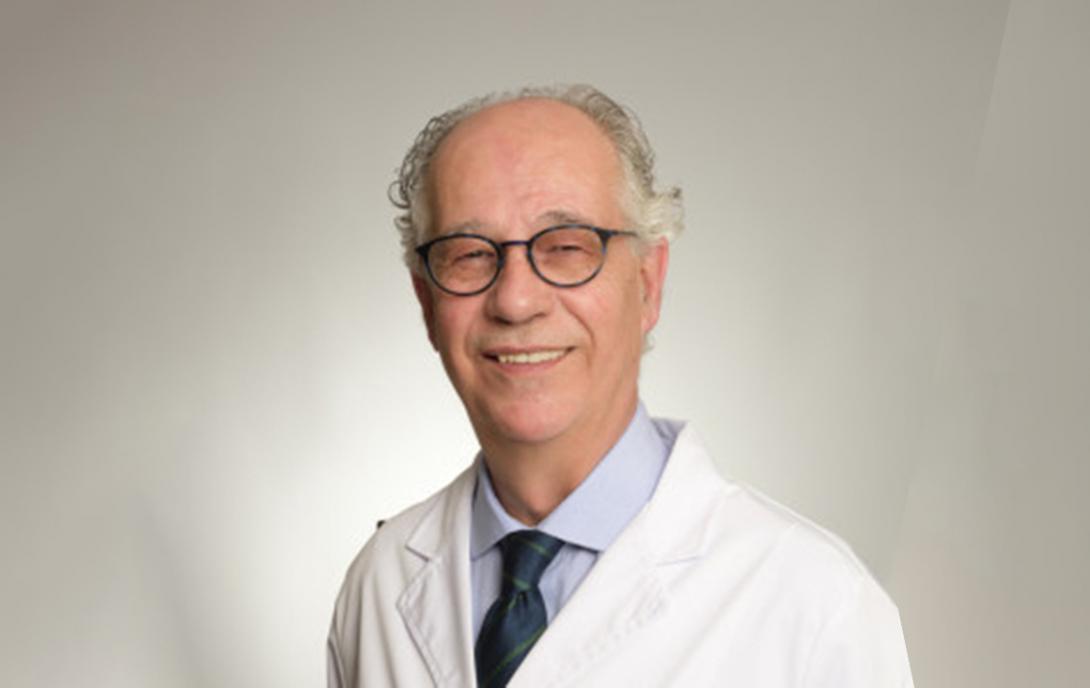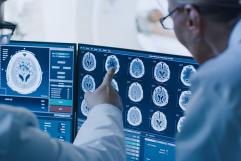
Eugeni Saigí grau: Head of the Cancer Service at Assistència Sanitària
“Cancer is a disease that has a very important impact on a person’s life, even for those who recover from it”
“Ensuring that the process is carried out in the best way possible and having a team that is as human as possible” are the two main goals followed by Doctor Saigí on the Cancer floor at the Hospital de Barcelona. He was trained in this speciality and he started his career as head of floor at the Hospital de Granollers. He later became Director of Oncology at the Hospital Universitario de Parc Taulí de Sabadell whilst, at the same time, he started working with Assistència Sanitària. Currently, he coordinates the Assitència Cancer Service, located in the Hospital de Barcelona, a project (he has emphasised on several occasions) which has put in depth specialisation on the patient with personalised programmes, a day centre and individualised therapy to cover all the requirements, going way beyond just the diagnosis alone.
The Spanish Medical Cancer Society (SEOM), of which he is a member, estimates that in 2040 cancer cases will increase by 50% compared to today. What is the situation of cancer today?
At present, cancer is on the rise for several reasons: one is because we live longer; ultimately, the mechanism by which a cell transforms and may become a neoplastic or tumour cell, is because over time mistakes accumulate in its division process. These accumulated mistakes reach a moment that gives rise to the appearance of a transformation of the cell, losing the division and substitution characteristics attached to the natural biological order and this is when a malignant tumour appears. If you live longer, it is more likely that these errors accumulate in your cells. This is one reason, but on the other hand, lifestyle habits also have an impact, exposure to toxic substances that could help the appearance of a cancer, environmental pollution and all these external factors that mean that at a specific moment and in a specific molecular and genetic structure, an exposed person may also develop a cancer.
What is the arbitrary percentage in cancer?
It depends on the type of factor that we are considering. We know that, for example, diet is a factor that can intervene in 30% of cancers, particularly of the digestive type and habits related to tobacco are directly related to lung or bladder cancer. Therefore, there are certain factors that intervene in a very specific way in certain tumours or cancers, taking into account that it is not a single disease, but rather a set of multiple diseases that have completely different development and genesis mechanisms. In addition, the selection is increasingly more specific, even in the variables of one cancer. At present when we talk about a triple negative breast cancer in which genetics plays an important role, we relate it in a way and with some etiologic factors that are very different to luminal type breast cancer, which is more related to older women, who have already gone through maternity, etc.
At your consulting rooms, how do you work with the concept of death and the fear of dying?
Unfortunately we don’t have a handbook of steps for dealing with the subject of death. Each person is different and knowing their level of need is essential in order to be able to help them. In any of the cases, generating a space for communication is essential because at times, neither the family and nor patient dare to express their queries. There has to be the ability to be able to manage these spaces for dialogue and talk about any concerns they might have. And this, obviously, requires a great deal of tact, transparency and vision to create these spaces in time.
What questions are patients frightened of asking and that are the ones that should be asked?
The “how long have I got left?” is the first one that comes to mind. But the fact of asking it is not as important as the reply they get to it. I mean: the patient asks it with the idea that the answer will be: “Don’t worry, we will see how it goes,” and not that you will say “you have three months left”. The fact that you, as a professional, have the information makes you responsible for its use. You have to try not only to be completely truthful, but also to ensure that that you really contribute something to the patient. Management of the information is complicated and although under no circumstances should we lie, there are many nuances in the truth.
I imagine that another question that might come up after recovery is “why am I okay and another person isn’t?”
It is true that the likelihood of relapse after the first five years is lower and therefore patients become much calmer after this time. There are longer spaces between visits to the doctor’s surgery, they become yearly and at a specific time, the patient may even be discharged. But it is also true that a person who has gone through a cancer and has recovered, statistically is more likely to suffer from a second one than a person who never has suffered from cancer, due to their genetic composition. But in any case, there is always a window open to return to the surgery, because there are many concerns and queries that can arise along the way and there is no point in not having access to be able to talk about them.
Apart from physician-centred work, what other aspects of the medical oncology system can be influenced to make it more effective?
Research, prevention and care, together with the social aspects related to this field. Cancer is a disease that has a major impact on a person’s life, even on those who are cured. If you have had cancer and you go to the bank to ask for a loan to buy a flat, you may be discriminated against. Governmental organisations need to work to offer legal proposals that do not hinder, for example, the incorporation of these people into the labour market. And not only that: resources must be available to deal with the physical and psychological consequences of the specific therapies that cancer represents, because sometimes it is difficult for them to cope with them. This includes adequate psychological support, too, and taking care of the education of the professional who deals directly with the patient, and here I am speaking particularly of nursing, which has a fundamental role in the care of cancer patients. These would be the essentials.



